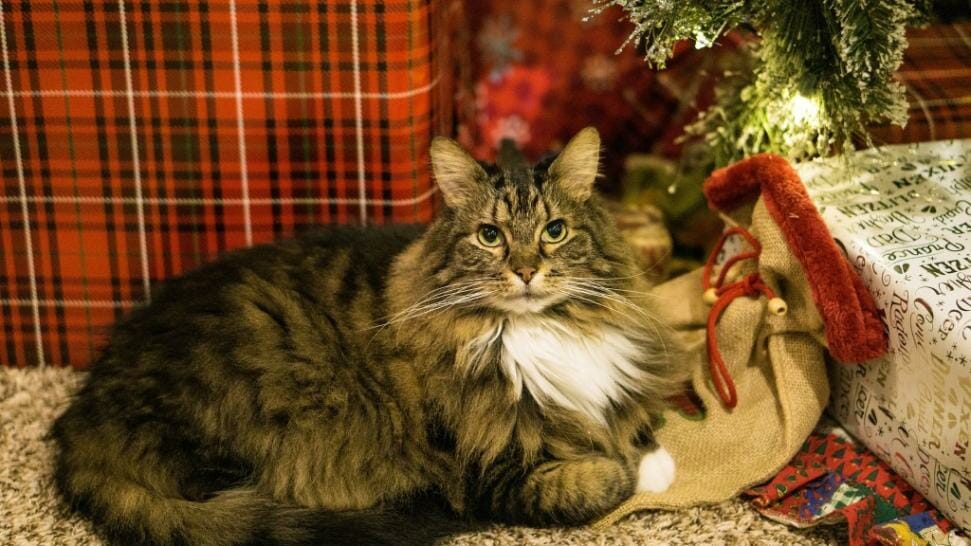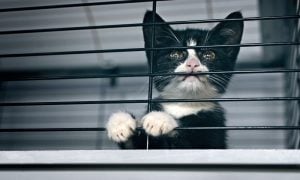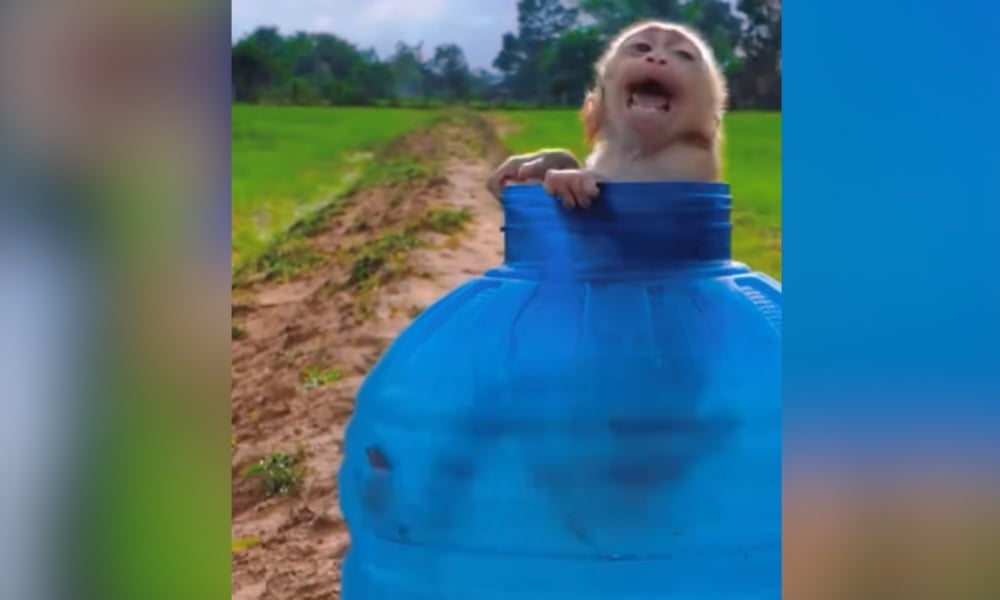Christmas is a joyous time to spend with friends and family, including the much-loved pets in your life. It is also, however, a time for treats and goodies, some of which, while lovely for us humans, are dangerous for our dogs and cats.
According to the British Veterinary Association (BVA), in the UK, 80% of veterinarians saw at least one incidence of toxic ingestion over the winter holidays in 2018. To make sure all your furry friends are safe and happy this Christmas, here are six tips to consider.
Festive Foods
Most of us overindulge during the holiday season, eating more rich and fatty foods than usual. That’s our choice, but your pet eats what you give them, and sticking to their normal diet avoids future health concerns. Don’t share your festive feast with your dog or cat, as these foods can cause upset stomachs and vomiting. Frequently sharing holiday food with your pets can lead to more serious conditions such as pancreatitis and gastroenteritis.
Quality Time
Rather than providing your pets with a constant stream of edible treats, play with and pay attention to them. The best gift you can give to your cat or dog this holiday season is your time. Obesity is a serious and growing problem for pets. If you , buy them non-edible toys instead of overloading them on treats.
Holiday Hazards
Many Christmas traditions involve substances that are toxic to cats and dogs. Common pet poisons include chocolate, dried fruit (in mince pies and Christmas pudding), nuts, xylitol (in sugar-free sweets), onions, garlic, and grapes. It’s not only foods that are perilous; holly, mistletoe, lilies, and Christmas flowers (poinsettia) are also toxic to animals.

Image Credit: Hucklebarry/Pixabay
All That Glitters
Decorations are a fundamental part of Christmas, but it is important to keep these sparkly hazards away from pets. Although dogs and cats will likely be enthralled by baubles, tinsel, and tree lights, they can be dangerous. Pets can entangle themselves in ribbons and lights, and baubles can be harmful if broken, chewed, or swallowed.
Present Danger
Batteries are often lying around during Christmas because of all the new toys and gadgets, but if chewed or swallowed by a pet, batteries can cause severe chemical burns or poisoning. Another present danger is scented candles, which might attract your pet’s attention, but the ingestion of oils or wax can be dangerous too. Finally, the silica gel sachets, which often come in packaged gifts, are another hazard that can cause stomach problems if consumed.
Be Prepared
Just in case your dog or cat still manages to get themselves into trouble after all your precautions, make sure you are prepared. Ahead of the holidays, ask your vet about where emergency services are offered over the holiday season.
If you follow these simple guidelines, you and your pets should enjoy a happy and healthy holiday without any problems.
Happy Holidays!







